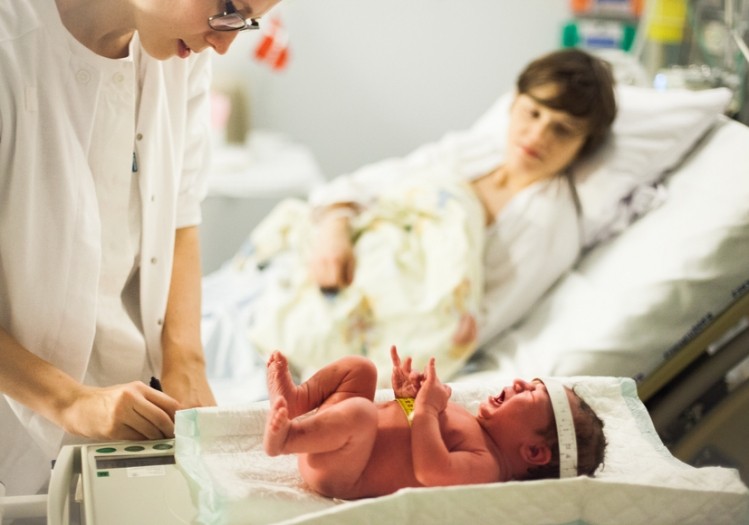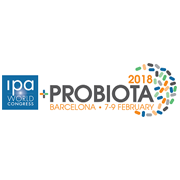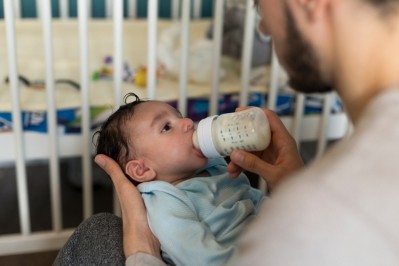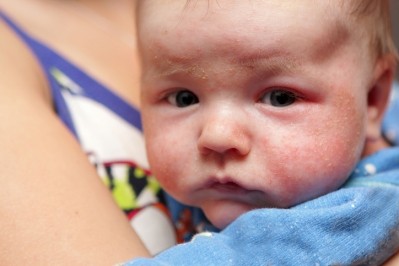Probiotic works with breast milk to colonise ‘good’ bacteria, new study finds

Week-old infants who were given the proprietary EVC001 strain of Bifidobacterium longum subsp. infantis (B. infantis) for three-weeks retained the bacteria as the dominant species in their gut for a further 30 days after supplementation finished, say researchers from the University of California (UC), Davis.
"Even though we stopped giving the probiotic on day 28 of life, the particular organisms we gave stayed in their faecal community out to 60 days and even longer," commented lead researcher Professor Mark Underwood, Chief of the Division of Neonatology at UC Davis Children’s Hospital. "They were surviving and dominating, and that's something we really have not seen before."
Supplemented infants also had lower faecal pH and less abundant numbers of harmful Proteobacteria, a pathogenic bacterial type which is recognised to be a marker of dysbiosis.
Compared with controls, supplemented infants also had four times lower endotoxin levels and higher concentrations of lactate and acetate, the team wrote in mSphere.
“We found that a low faecal pH was negatively associated with Proteobacteria, whose presence in a gut community is considered a signature of dysbiosis,” noted Underwood.
“Colonisation by B. infantis EVC001 resulted in significant changes to faecal microbiome composition, and was associated with improvements in faecal biochemistry,” he added.
The supplemented babies also showed lower levels of faecal milk oligosaccharides, which suggest higher consumption of human milk oligosaccharides (HMO) by the probiotic B. infantis. This finding strengthened previous evidence that B. infantis works with HMO in breast milk to help create a beneficial microbiome in infants.
"Compared to all the bugs we've tested, this one is a really good consumer of milk oligosaccharides," said Underwood. "It's able to use the sugar molecules in mom's milk better than any other gut microbe, including commensal and pathogenic bugs."
Significance
Previous research has shown strong links between imbalances in gut bacteria (dysbiosis) and disease. Such disruptions to the microbiome may be particularly important in early life, suggests Underwood.
Colonising an infant’s gut with beneficial bacteria might therefore lower the risk of allergies, asthma, irritable bowel syndrome and diabetes later in life, he hypothesised.
Nevertheless, Underwood cautioned, “Future studies will be necessary to elucidate the durability of this effect through later childhood and whether these effects have an impact on overall health later in life.”
Combining the probiotic into a formula milk containing HMO might also extend the benefits to non-breastfed babies, he proposed.
“The combination of human milk and an infant-associated Bifidobacterium show, for the first time, that durable changes to the human gut microbiome are possible and are associated with improved gut function.
"If mom can't breastfeed for whatever reason, our hypothesis would be if you give that baby a 3-week course of this probiotic and a formula with added human milk oligosaccharides, colonization should happen and persist as long as they're on that formula," he added.
Previous research has found that a high level of B. infantis is associated with healthy infants.
IPA World Congress + Probiota 2018
The rapidly evolving universe of probiotics, prebiotics and the microbiome will be discussed in-depth at the upcoming IPA World Congress + Probiota 2018 in Barcelona on February 7-9.
From microbiome advances, to start-up game changers, market stats, crucial clinical science and regulatory knowledge, this is a congressional must-have.
Will you be joining your peers in one of Europe’s great cities?
Study details
The Infant Microbiota and Probiotic INtake Study (IMPRINT) included the infants of 66 mothers who were breastfeeding. Starting at age one-week, in the supplement group, mothers fed their babies with Bifidobacterium longum subspecies infantis EVC001, for three-weeks. Infants in the control group were not supplemented.
The researchers analysed faecal samples during the first 60 days of life to measure gut bacteria composition variations, short-chain fatty acids, faecal oligosaccharides content and faecal pH.
Safety and tolerability
The probiotic strain used in the trial, Bifidobacterium longum subspecies infantis EVC001 is manufactured by Evolve Biosystems Inc.
For Evolve, the absence of adverse effects, safety and tolerability of the strain was also an important outcome of the study.
"This study shows that supplementation with activated B. infantis in combination with breast milk is safe and well tolerated in infants," said David Kyle, CEO of Evolve BioSystems.
"The initial clinical safety and tolerability results from the IMPRINT trial are very encouraging and pave the way to restoring the infant gut microbiome to a more healthy state much like that of our ancestors," added Underwood.
Source: mSphere
Published online, doi: 10.1128/mSphere.00501-17
“Persistence of supplemented Bifidobacterium longum subsp. infantis EVC001 in breastfed infants”
Authors: Steven A Frese, Mark A. Underwood et al
















